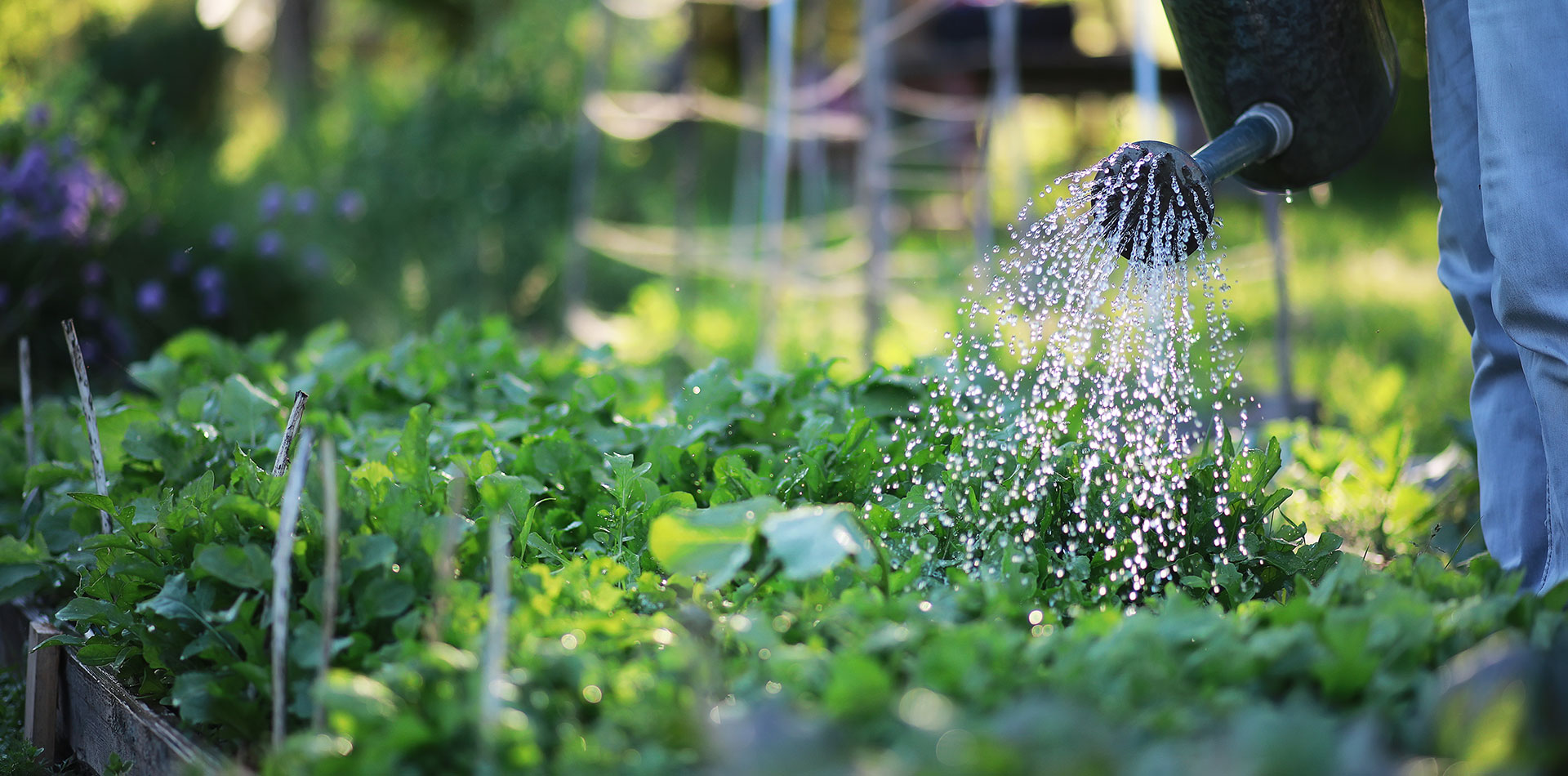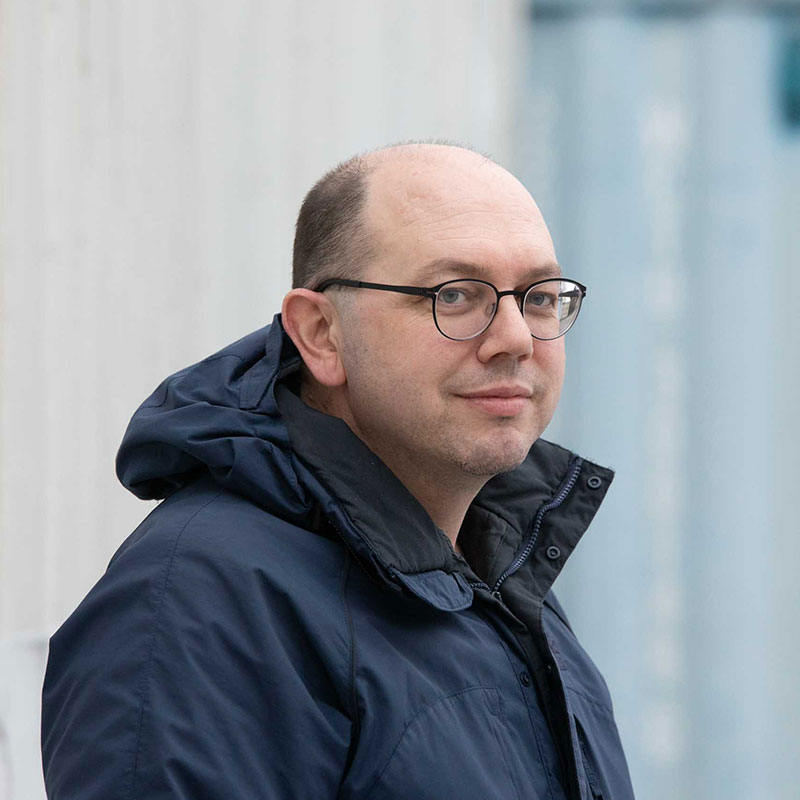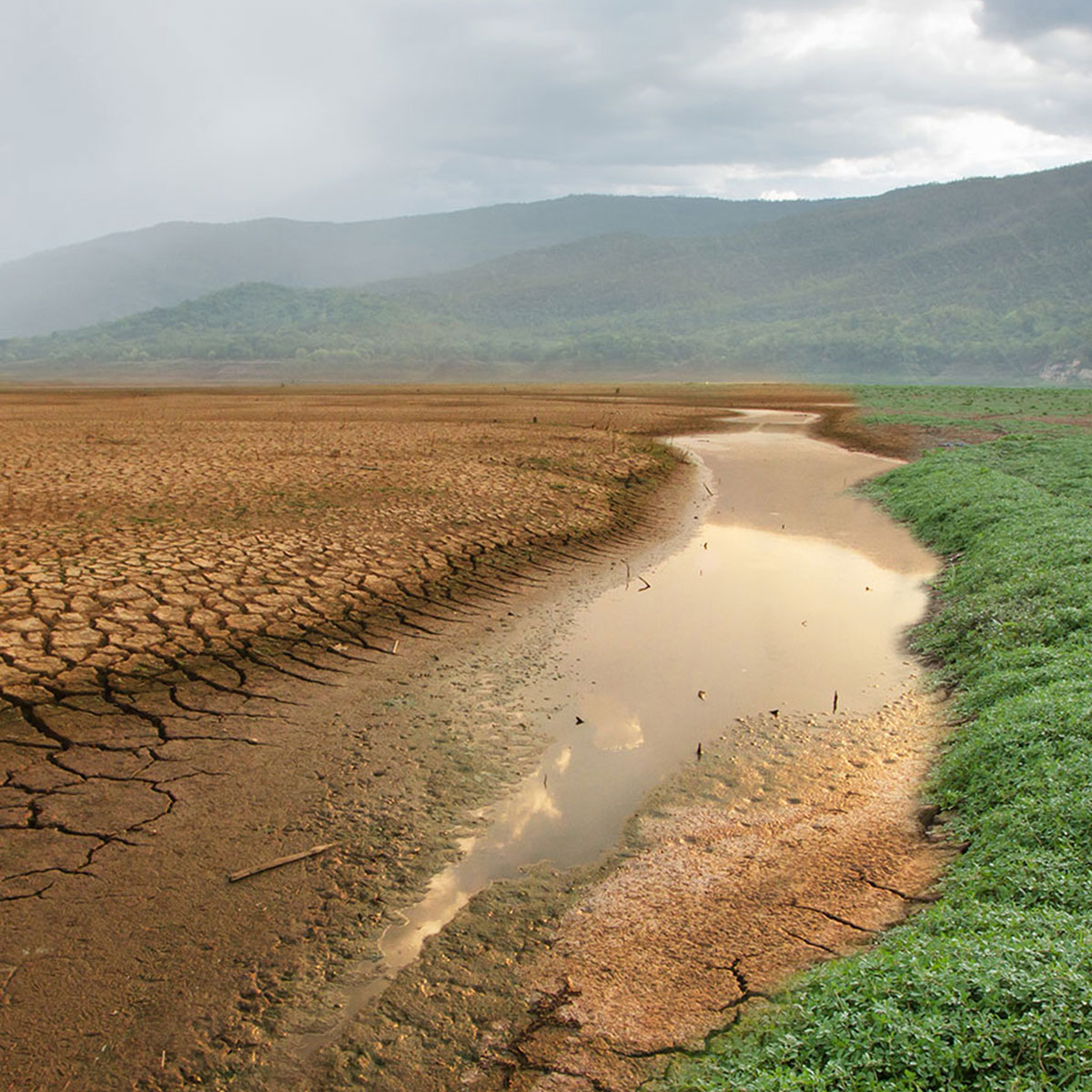
The world is what it eats.
Our nutrition, climate change and how we use water are all connected. And we, as in the wealthier industrialised nations, must pave the way and find a way to adopt a climate-friendly diet. It should be a win-win situation for all of us, without compromising quality of life.
The good news first: we have rarely been so mindful of our nutrition. "You are what you eat" is no longer a platitude. Rather, it is reflected in survey results, floor-to-ceiling shelves full of (cook) books, the refrigerated display counter in supermarkets as well as dozens of new restaurants.
What's more, an increasing number of people are becoming aware that what they eat impacts the climate and consequently all of us. In view of the threat of dry seasons, it is becoming more and more important to focus on how much water foodstuffs consume during cultivation, production and transport. Growing a tomato requires up to 50 litres of water. Most of these find their way into our supermarkets as "air-freight vegetables". We cannot go on like this.
We sat down for an interview with two people who have been working on the topic of nutrition for years. This week we kick off with Mathias Plüss, science journalist and author. Next week, Sophia Hoffmann, vegan cook, book author and co-founder of Happa restaurant in Berlin, will join us.
Both of them agree that along with food, the restaurant industry must also change. They also find that we can only bring about change together, as individuals and businesses and through smart policies.
"If we intend to turn things around for good, we need to join forces."
Mathias Plüss
Photo ©Regina Hügli

Mathias Plüss, put simply: what is the most reasonable way for us to eat in order to protect the climate and, above all, to save water, and why?
Mathias Plüss: One of the challenges that is often left out of the environmental debate is the fact that the objectives sometimes contradict each other. For example, organic is good for biodiversity, but not always good for the climate. Winter tomatoes grown in Spain are good for the climate, but are bad for water, since they are often produced in very dry regions with extensive irrigation. In contrast, local winter tomatoes do not pose a water problem, but have a poor energy footprint, since they usually are grown in heated greenhouses. The environmentally responsible winter tomato is therefore the one in a can.
It sounds tricky, but with a just a few simple guidelines, you can meet the needs of all sides to some extent: don't buy goods that are flown in. Less meat, fewer dairy products.
Less rice, too, since it is not good for the climate.
Buy seasonal fruits and vegetables. Regional sourcing is less important, since transport usually plays a minor role in the environmental footprint. However, you should make sure that imported products are not sourced from dry zones. Californian almonds, South American avocados or fruit and vegetables from southern Europe present significant problems.
How can we modify our diet on a small scale while thinking on a large scale?
Where are there synergies and how can we work together to implement change?
Mathias Plüss: The restaurant business is extremely important. We consume about half of our daily meals in restaurants. In doing so, however, we pay much less attention to the environmental impact than when we cook for ourselves. A number of studies have now demonstrated that the choice of menus and how they are presented have a major influence on meat consumption. The larger the selection of veggies, the less meat is consumed.
This is easy to do without any pressure at all. It is a good idea, for example, if two out of three menus offered in cafeterias are always vegetarian or vegan. And please do not advertise them as "vegi", because that will scare off certain people.
Restaurants often present a blind spot when it comes to nutrition. The idea with the broader veggie offer naturally applies here as well. It also helps to add an environmentally-friendly dish the restaurant's regular menu or if the first menu is always vegan or vegetarian - without explicitly specifying it: foodwaste is a huge issue. One that can be resolved by small portions (with seconds offered), doggy bags, leftover menus and small plates at the buffet. Another huge problem is culinary training, which is still very much focused on meat. A specific training program on how to become a vegetarian chef would be a great step.
It often seems that the objective is clear, but implementation presents a (complex) problem. What we need (not only) in terms of food is a systemic change. What would you say: what does this look like and how do we arrive at this point?
Mathias Plüss: It will definitely take a lot of time and energy. We saw it with the Covid 19 shock: there was a compulsory shift towards more sustainable lifestyles in a number of areas (flying, food, driving), but this has since completely disappeared. If we want to turn the tide for good, we have to pool our resources: new technologies, innovative companies, smart policies, bans and regulations, but also individuals and small communities that get involved and spread the word. Realizing such a shift in our social norms in a greener direction requires an effort on a large scale.
A very important point here is that we as humans do not really like loss - that's the way we are wired. The targets we set for ourselves as individuals or as a society should therefore not focus on sacrifice, but rather on something positive for which we can summon up the necessary motivation. Anyone who takes a good vegetarian cooking course is more likely to manage the transition than someone who simply resolves to stop eating meat in the future. Aspirational goals may also include improved health through cycling or a city with less noise and cleaner air by reducing car traffic.
Thank you very much for the interview, Mathias.
Tipps
Mathias Plüss, Weniger ist weniger
Learn moreGastroFutura
Learn moreFood Choices
WatchWant to keep reading?
Today's idea, tomorrow's impact: From 0 to 100 Coaching!
You have it. A transformative idea, the solution to our water issues. Perhaps. Are you not quite sure? Then apply now for From 0 to 100 coaching, which will take you and your idea to the next level.
Apply now!
Water in (climate) change: Approaches for a more sustainable use of water
Flooded stretches of land, villages and cities on the one hand, dried-up fields and rivers on the other. With the effects of climate change, the water cycle is becoming increasingly unbalanced. What to do?
Read more
«We need to see feasible courses of action for us.»
An interview with Lea Dohm, psychotherapist and Psychologists4Future co-founder about the challenges of the climate crisis and how we can get into action.
Read the Interview

«Water is a flow, not a store.»
Tobias Schäfer, Water Protection Officer at WWF Germany talks to us about the water situation in Switzerland and Germany, about water as a circular economy par excellence and new approaches.
Read the interview
 Check out the manual
Check out the manual Try out the toolbox
Try out the toolbox Discover the water mission
Discover the water mission Get to know the Migros Pioneer Fund
Get to know the Migros Pioneer Fund